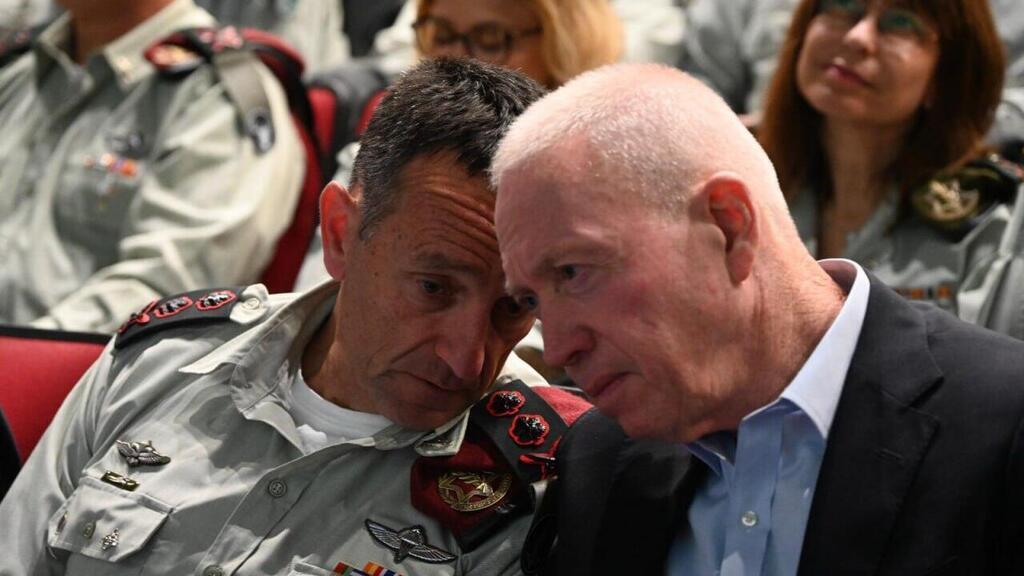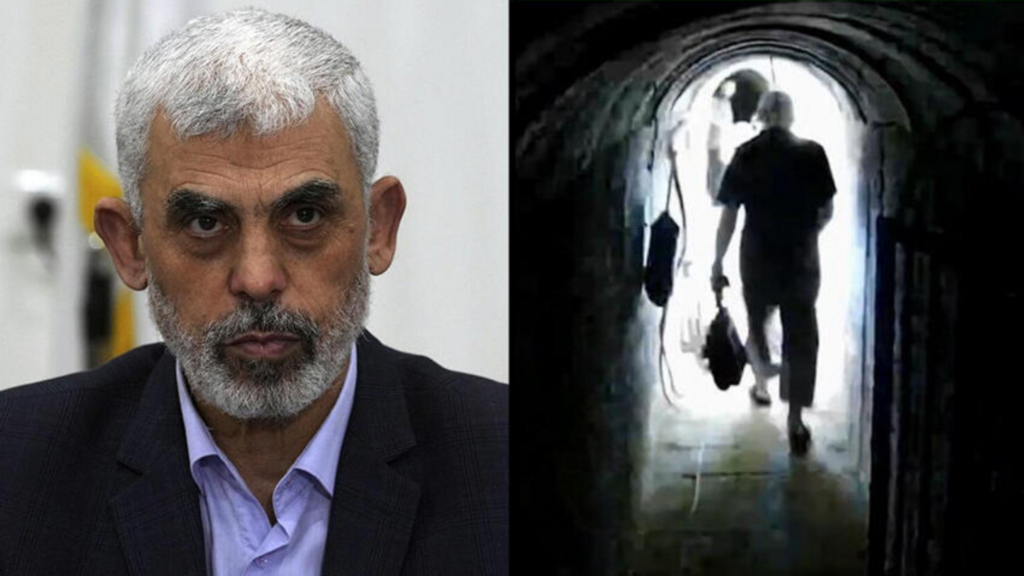On Wednesday, Defense Minister Yoav Gallant laid out his vision for the future of Gaza in a message that resonated with cabinet members and journalists alike. Gallant firmly believes that the path to a stable post-Hamas enclave, lies in the establishment of Palestinian control backed by international support.
2 View gallery


Chief of Staff Herzi Halevi with Defense Minister Yoav Gallant
(Photo: Defense Ministry)
Gallant envisions this as the antidote to the entrenched reign of terror in Gaza. He argued that failing to make a decisive move would inevitably lead to the creation of an Israeli military and civilian administration in Gaza—a scenario he deems a security and strategic danger for Israel.
While Gallant's logic finds echoes in international circles, especially in the United States, he is well aware of the complexities and perhaps the near-impossibility of his vision. The idea of the Palestinian Authority (PA) retaking control of Gaza seems far-fetched until Hamas is thoroughly defeated. Any force attempting to enter Gaza while Hamas still holds sway would face grim consequences—execution by hanging, being thrown from roofs, or a bullet to the head.
Gallant also reviewed the extensive operations in the West Bank, perhaps needing a reminder of the PA's limited capacity to operate effectively in the refugee camps of Jenin and Tulkarm. Given the current situation, the PA wouldn't last 24 hours against Hamas militants. If Israel requires American arms, imagine the needs of the Palestinian security mechanisms. Now consider the potential chaos if tens of thousands of rifles were to land in the hands of a public that overwhelmingly supports the events of October 7.
The defense establishment, including IDF leadership, is not united on this issue. The arguments are serious and warrant detailed discussions. However, past arrogance and complacency, which led to the catastrophic misreading of Hamas's intentions and capabilities, still haunt us. Those within and outside the General Staff, whom Gallant represents, speak from a place of professional expertise and genuine patriotic commitment. But a dose of humility wouldn't hurt, given past failures and the reminder of who recommends and who decides.
The stark reality remains unchanged since Gaza became a terrorist stronghold: no one will fight our battles for us, and no one will sacrifice themselves or their families for our cause. This is why Israel was established—to defend ourselves, by ourselves. No one will enter Gaza, and certainly not manage it, until Israel dismantles Hamas. An enemy that sent 3,000 terrorists to slaughter, rape, and abduct civilians cannot be left standing.
We didn't achieve this in previous rounds of fighting, and now we have no choice. The costs are, and will continue to be, very high. Every Israeli longs for the day when the bleeding in Gaza stops, the northern front calms down, and life returns to normal. But this is the Middle East, and the renewed "dripping" of fire into western Negev communities indicates the mission isn't over. If we pull out tomorrow and the firing intensifies, what will we say to the residents of Sderot, the Gaza border region, and perhaps Ashkelon too?
Due to poor pre-war conduct, problematic war management, and increased American pressure following failures, we are in a particularly sticky situation. But giving up is not an option. Enemies and potential allies are watching our every move, and failure could cost us even more than we are paying now.



